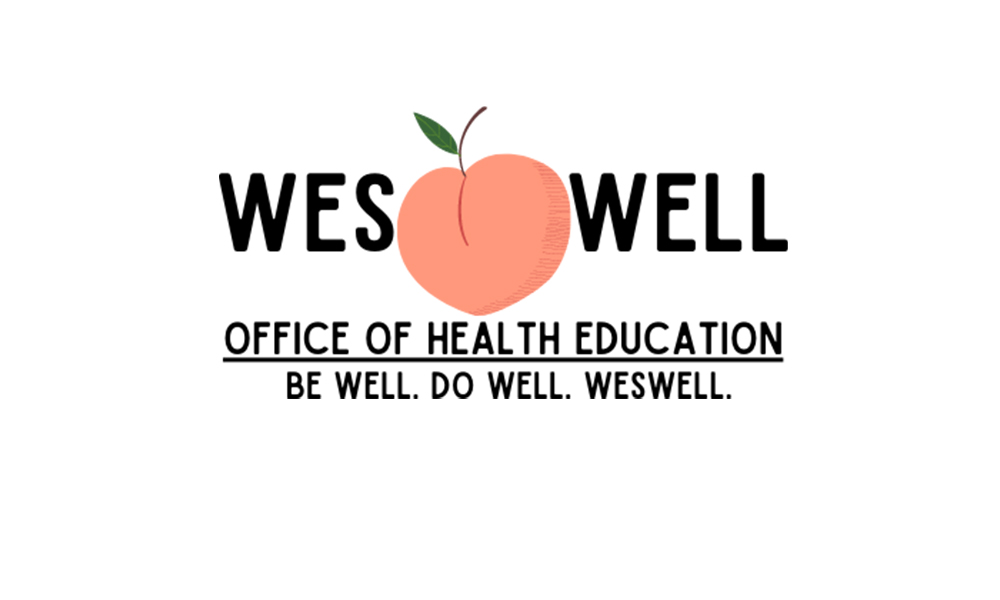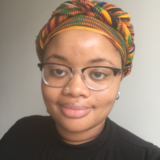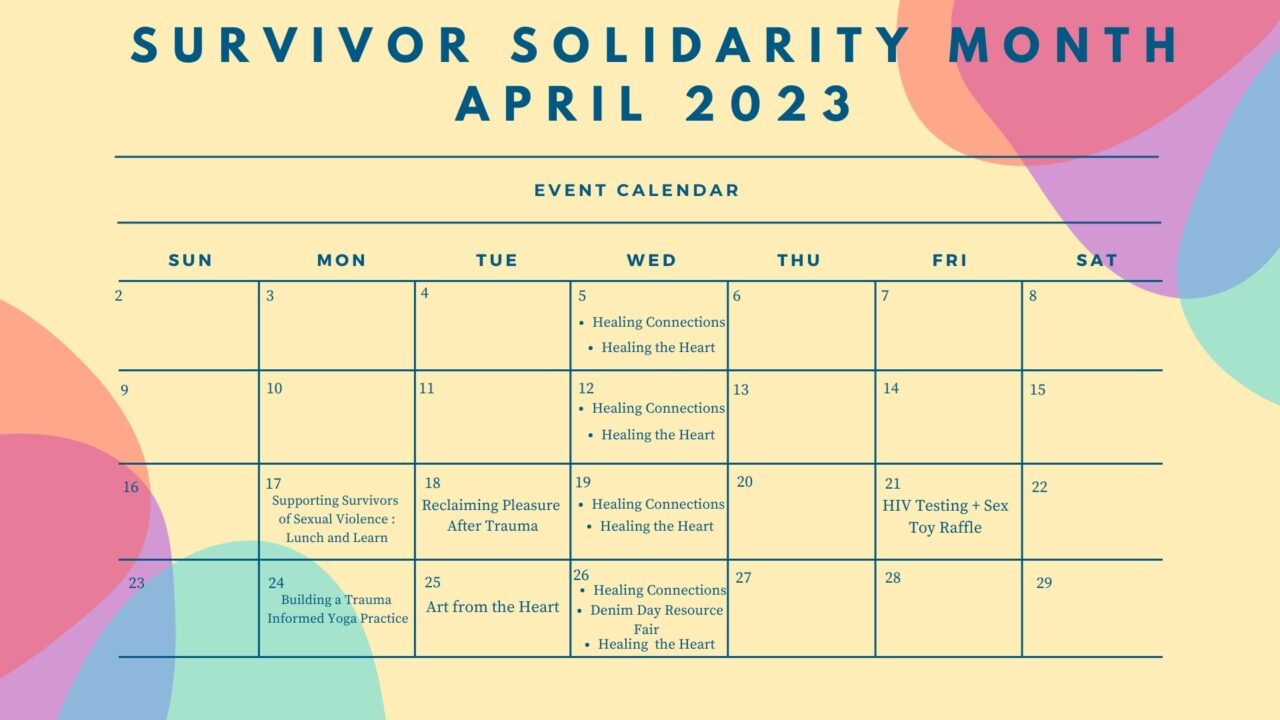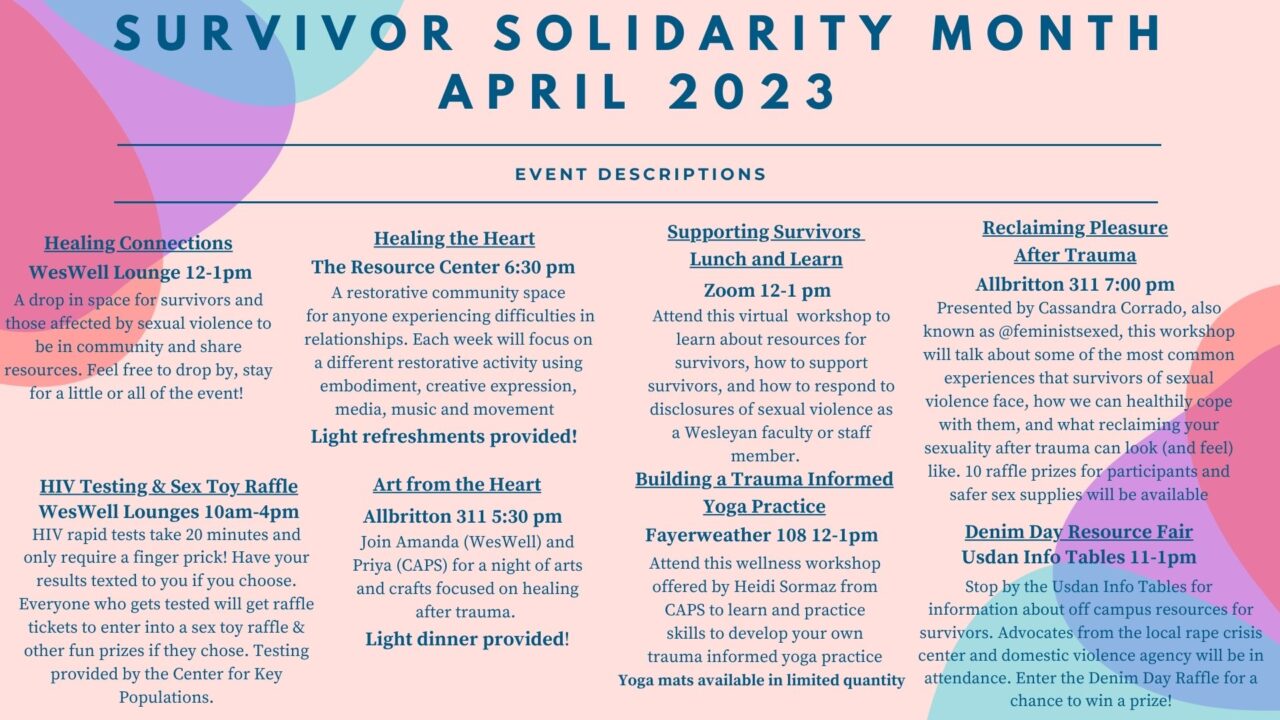Wesleyan Recognizes Survivor Solidarity Month

The statistics on sexual abuse are staggering. According to the Centers for Disease Control, 1 in 4 women and 1 in 6 men report experiencing rape or sexual abuse before they turn 18.

“This means that a significant portion of young adults entering college have already been impacted by sexual violence,” said Amanda Carrington, Wesleyan’s Associate Director for Sexual Violence Prevention.
The numbers are not much better while at college. About 1 in 5 female students, and 1 in 16 male students experience sexual violence through physical force, violence, or incapacitation while in college, according to the Rape, Abuse & Incest National Network (RAINN).
Wesleyan is committed to standing alongside the victims and providing support and a safe environment. “A lot of students are very vocal about needing and looking for support, as well as sharing resources amongst each other,” Carrington said.
April is recognized as Survivor Solidarity Month at Wesleyan. This month, Carrington and the team at WesWell, the Office of Health Education, have coordinated a series of events that hope to offer chances for solidarity and community building around this issue.
“A lot of people don’t necessarily like talking about sexual violence. But, unfortunately, a lot of people are impacted by it, including students. So, part of (the month) is about destigmatizing the experience, as well as raising awareness about healing and wellness around sexual violence,” Carrington said.


Workshops in reclaiming pleasure in the wake of trauma, creating a trauma informed yoga practice, and using art to heal after trauma are being offered. In addition, there are safe spaces available for people to share resources and to talk about their relationships—in short, to just be able to heal.
She also hopes that the events can show people who have been the victims of sexual violence that there are allies out there, that there are people who care and are interested in supporting them. “A lot of the events aren’t necessarily focused on speaking about trauma specifically, but it’s generally acknowledging that there’s other ways to process healing,” Carrington said.
Carrington has simple advice for individuals who are trying to help those who are disclosing the fact they were the victims of sexual violence.
First off, start by believing what you are told. “A lot of survivors have the fear of disclosing (what happened to them) because they feel like people won’t believe them. So, letting a person know that you believe that this happened to them and that are there to support them in any way they need is important,” Carrington said.
It’s also more important to prioritize listening without judgement than offering an opinion. People often ask questions to be able to offer support. But for the person who has been assaulted, it can feel like victim blaming despite best intentions, Carrington said. “People want to help but they end up doing more harm than good,” Carrington said.
There is, in the end, a simple overarching goal for Survivor Solidarity Month: “I want them to know that people on campus care about them,” Carrington said.
Carrington is a confidential resource on campus for students who have been impacted by sexual violence. Students can contact Amanda directly by phone (860-685-2696) or email (acarrington@wesleyan.edu).
Visit the WesWell website to learn more about the University’s sexual violence resources.

